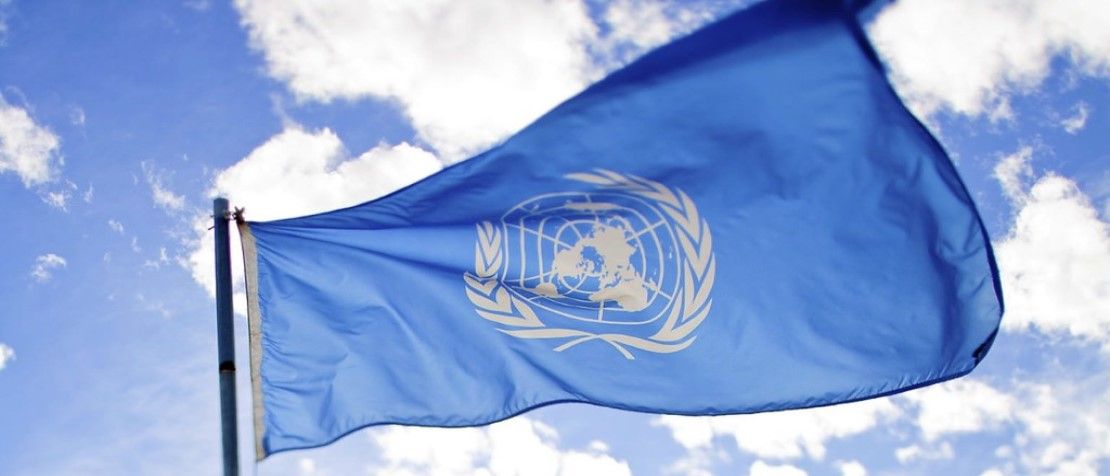
Digital cooperation is key to Our Common Agenda
Following the 76th anniversary of the United Nations on 24 October, ITU News looks at key recommendations related to digital technologies in the UN Secretary-General’s September 2021 report “Our Common Agenda: Responding to Current and Future Challenges.”
The potential of digital technologies to help make our world fairer and more peaceful is getting fresh attention across the United Nations as the venerated institution celebrates 76 years since the UN Charter came into force.
A report released by UN Secretary-General Antonio Guterres last month proposes an agenda to act on 12 commitments in the Declaration on the commemoration of the 75th anniversary of the United Nations.
One of those commitments is to improve digital cooperation.
This refers to enhancing global collaboration in multiple forms to address the societal, ethical, legal, and economic impacts of digital technologies, aiming to maximize the benefits to society and minimize harms.
A digital future for all?
A ‘global commitment for digital cooperation’ has been a key theme in the report of the UN Secretary-General’s High-level Panel on Digital Cooperation. The UN Secretary-General’s vision of an open, free and secure digital future for all also underpins his Roadmap for Digital Cooperation.
In the report on Our Common Agenda, the UN Secretary-General advocates for a so-called “Global Digital Compact” – a multi-stakeholder understanding between Member States, the private sector and civil society, with the engagement of the private sector.
This could be similar to the UN Global Compact that encourages companies to commit to corporate sustainability initiatives that advance societal goals.
While the exact mandate of the Global Digital Compact remains to be seen, it would likely focus on the technological aspects of some of the world’s most pressing challenges.
For example, it could prioritize digital inclusion and set milestones for connecting everyone on Earth to the Internet – including all schools. School connectivity is already being actively promoted by Giga, an initiative by the International Telecommunication Union (ITU) and UNICEF.
When it comes to fighting digital disinformation and discrimination online, the Global Digital Compact could introduce accountability criteria for misleading or harmful content.
Digital cross-pollination
Like the UN Sustainable Development Goals for 2030, the 12 points in Our Common Agenda are closely interrelated.
Other commitments also rely on enhanced use of digital technology.
For example:
• Leave no one behind: People yet to be connected, including higher proportions of women, the elderly, persons with disabilities, and indigenous groups, remain cut off from the benefits of digital technology. Redoubling digital inclusion efforts will be key to advance progress in this area.
• Upgrade the United Nations: Today’s world is unrecognizable from the one in which the UN was first created. As a global institution that depends on digital technologies to function, the UN must leverage digital transformation towards becoming a more efficient and agile ‘United Nations 2.0’.
• Listen to and work with youth: Preparing for a new future of work and digital economies will require changes in our approach to education. Today’s challenges call for more emphasis on science, technology, engineering, and mathematics (STEM) and for ensuring that young people can obtain and upgrade their digital skillset throughout their lifetimes.
• Be prepared: The COVID-19 crisis has demonstrated the crucial power of digital technologies to keep businesses operational and livelihoods sustained. According to an International Energy Agency report, global Internet traffic surged by nearly 40 per cent amid lockdowns between February and April 2020. Access to digital health technologies and other digital tools will be essential to prepare for future pandemics.
Networked multilateralism
The UN Secretary-General’s message is clear: digital technologies are and will be increasingly critical to achieve the 2030 Agenda for Sustainable Development.
To this end, Our Common Agenda emphasizes a multi-stakeholder governance approach, with an enhanced role for civil society and people-centred digital cooperation.
ITU, as the UN specialized agency for digital technologies, offers a working platform for multi-stakeholder collaboration and will be an important contributor to the work towards implementing the Common Agenda and the proposed Global Digital Compact.
Its diverse membership – consisting of 193 governments and over 900 private sector companies, universities, and regional and international organizations – works together to harness the power of technology as a source for good and promote safe affordable connectivity for everyone, everywhere.
As the UN steps up post-COVID recovery action to keep the 2030 Agenda on track, ITU aims to mobilize digital cooperation in line with Our Common Agenda, endeavouring to maximize the benefits of connectivity and digital technologies for current and future generations.
Image credit: Sanjit Bakshi via Flickr
